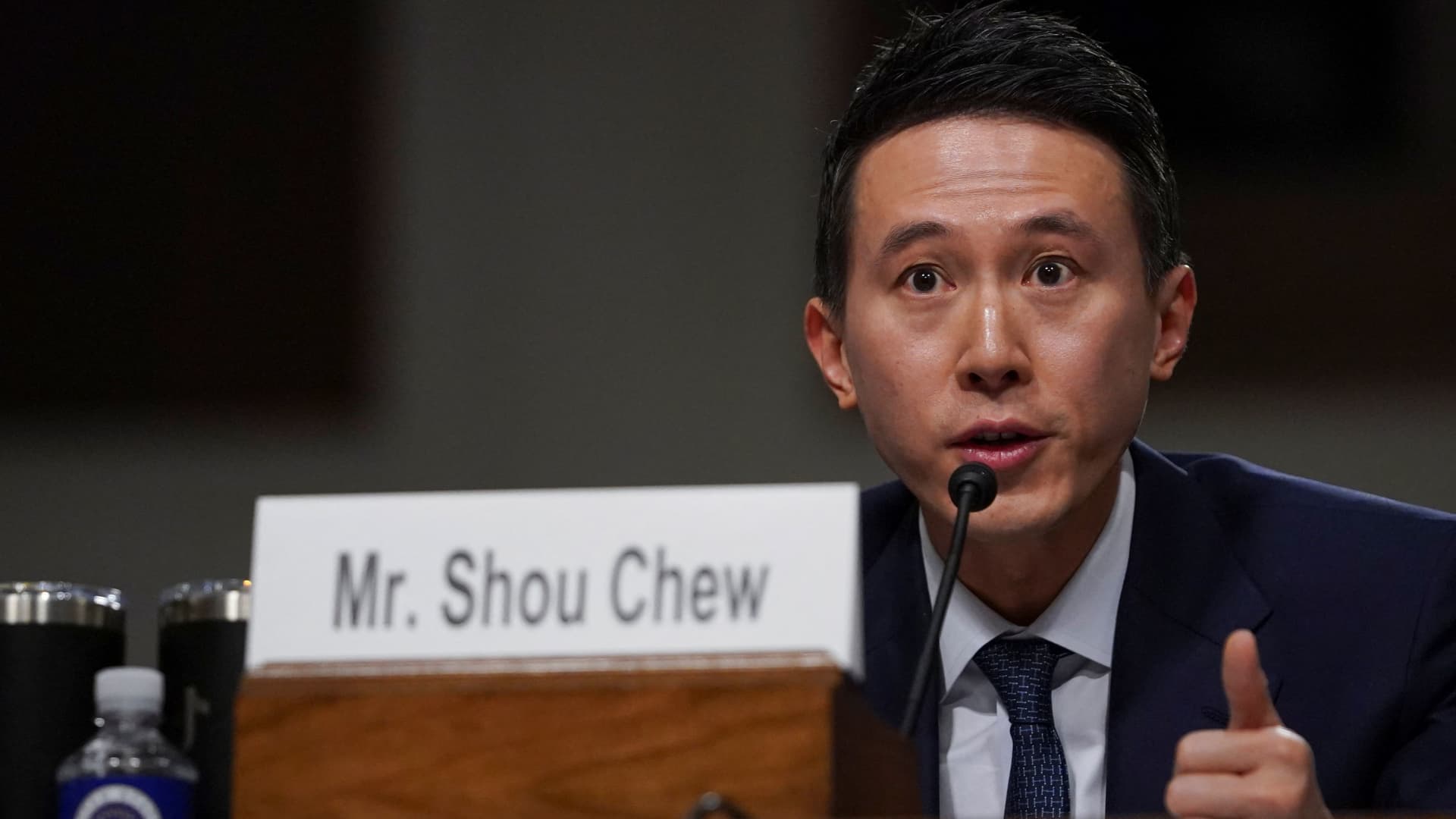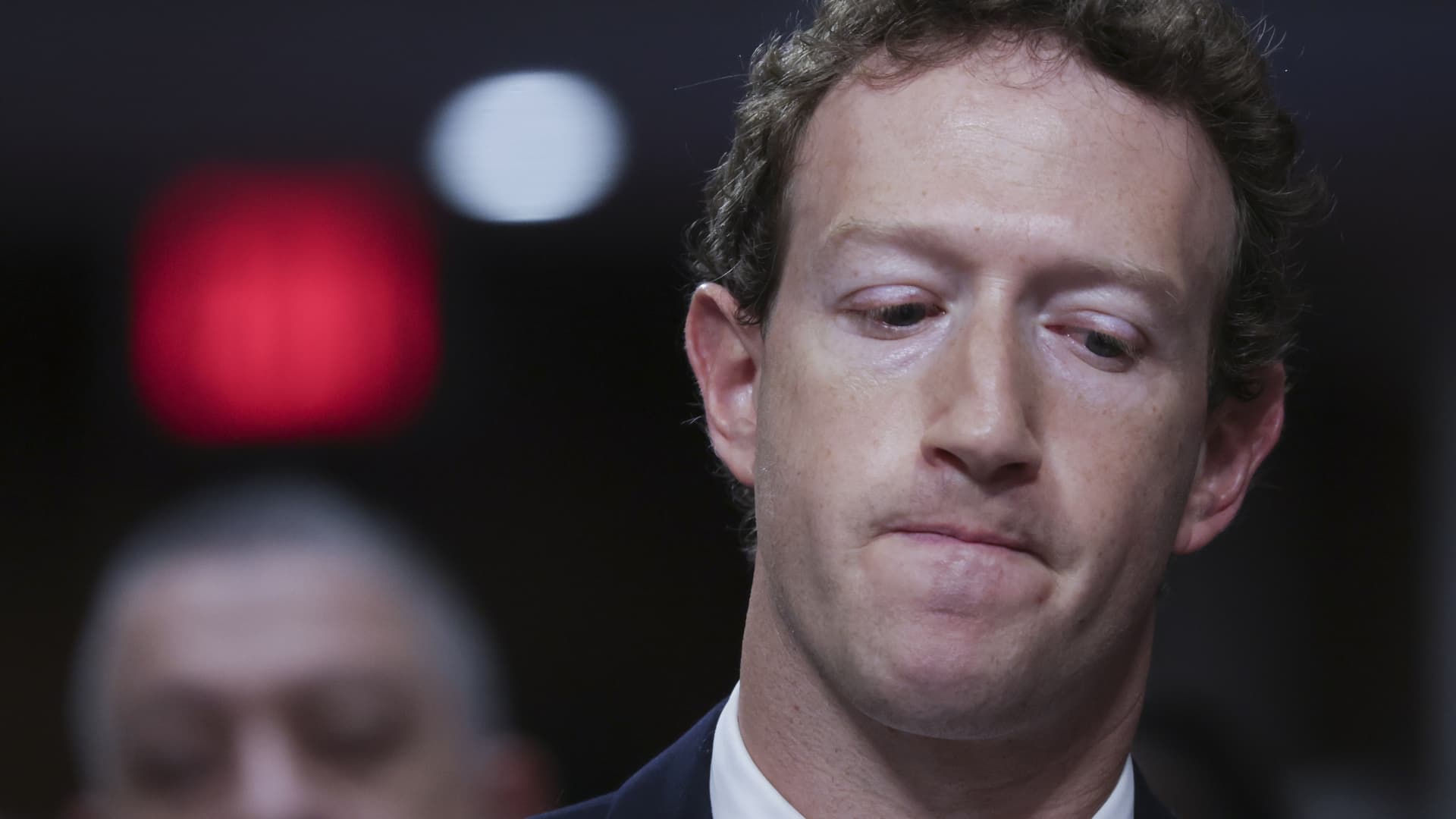
- Donald Trump's election victory may provide a lifeline for TikTok, which faces a potential U.S. ban in January if not divested from parent company ByteDance.
- Although both Republicans and Democrats supported President Joe Biden's TikTok ban in April, Trump voiced opposition to it during his candidacy.
- Trump in March said he believed a TikTok ban would only benefit Meta, which he labeled "an enemy of the people."
After Donald Trump won the U.S. presidency last week, tech CEOs including Apple's Tim Cook, Meta's Mark Zuckerberg and Amazon's Jeff Bezos publicly praised the president-elect.
WATCH ANYTIME FOR FREE
>Stream NBC10 Boston news for free, 24/7, wherever you are. |
One name was conspicuously missing: TikTok CEO Shou Zi Chew.
His absence was notable considering that of all the top tech companies, TikTok faces the most immediate and existential threat from the U.S. government. In April, President Joe Biden signed a law that requires China's ByteDance to sell TikTok by Jan. 19. If ByteDance fails to comply, internet hosting companies and app store owners such as Apple and Google will be prohibited from supporting TikTok, effectively banning it in the U.S.
Get updates on what's happening in Boston to your inbox. Sign up for our >News Headlines newsletter.
Trump's return to the White House, though, may provide a lifeline for Chew and TikTok.
Although both Republicans and Democrats supported the Biden TikTok ban in April, Trump voiced opposition to the ban during his candidacy. Trump acknowledged the national security and data privacy concerns with TikTok in a March interview with CNBC's "Squawk Box," but he also said "there's a lot of good and there's a lot of bad" with the app.
Trump also leveraged TikTok's shaky future in the U.S. as a reason for people to vote against Democrat Vice President Kamala Harris.
Money Report
"We're not doing anything with TikTok, but the other side is going to close it up, so if you like TikTok, go out and vote for Trump," the president-elect said in a September post on his Truth Social service.
Since his election, Trump hasn't publicly discussed his plans for TikTok, but Trump-Vance transition spokeswoman Karoline Leavitt told CNBC that the president-elect "will deliver."
"The American people re-elected President Trump by a resounding margin giving him a mandate to implement the promises he made on the campaign trail," Leavitt said in a statement.
Trump's rhetoric on TikTok began to turn after the president-elect met in February with billionaire Jeff Yass, a Republican megadonor and a major investor in the Chinese-owned social media app.
Yass's trading firm Susquehanna International Group owns a 15% stake in ByteDance while Yass maintains a 7% stake in the company, equating to about $21 billion, NBC and CNBC reported in March. That month it was also reported that Yass was a part owner of the business that merged with the parent company of Trump's Truth Social.

If ByteDance doesn't sell TikTok by the January deadline, Trump could potentially call on Congress to repeal the law or he can introduce a more "selective enforcement" of the law that would essentially allow TikTok to continue operating in the U.S. without facing penalties, said Sarah Kreps, a Cornell University professor of government. "Selective enforcement" would be akin to police officers not always enforcing every single instance of jaywalking, she said.
At TikTok, meanwhile, Chew has remained quiet since Trump's victory, just as he had been in the lead-up to Election Day.
The Chinese-owned company may be taking a neutral approach and a wait-and-see strategy for now, said Long Le, a China business expert and Santa Clara University associate teaching professor.
Le said it's hard to foresee what Trump will do.
"He's also a contrarian; that's what makes him unpredictable," Le said. "He can say one thing, and the next year he'll change his mind."
TikTok didn't respond to requests for comment.

'Facebook has been very bad for our country'
When it comes to social media apps, Trump's campaign comments suggest he's more concerned with TikTok rival Meta.
In his March interview with "Squawk Box," Trump said Meta, which owns Facebook and Instagram, posed a much bigger problem than TikTok. He also said a TikTok ban would only benefit Meta, which he labeled "an enemy of the people."
"Facebook has been very bad for our country, especially when it comes to elections," Trump said.
But Trump's negative views on Meta may have changed after comments by CEO Mark Zuckerberg over the past few months, Cornell's Kreps said.
Zuckerberg described the photo of Trump raising his fist following a failed assassination attempt in July as "one of the most badass things I've ever seen in my life." And after Trump's win, Zuckerberg congratulated him, saying he was looking forward to working with the president-elect and his administration.
"My sense as an armchair psychologist of Trump is that he really likes people who sing his praises, and so his view on Zuckerberg and Meta, I would imagine, has changed," Kreps said. "He might then just revert to his American economic nationalism here and say, 'Let's protect American industry and continue with the Chinese ban.'"
Meta didn't respond to a request for comment.
Maintaining support of the TikTok ban could also win Trump political favor with lawmakers concerned about China's global political and business influence, said Milton Mueller, a professor at Georgia Tech's School of Public Policy.
"I don't see him scoring big points politically by standing up for TikTok," Mueller said, noting that few lawmakers, like Sen. Rand Paul, R-Ky., have opposed the ban.
Even if Trump does provide a lifeline for TikTok, it's unclear how much damage that would do to his administration since many politicians are reluctant to publicly criticize him, Le said.
"They're not going to challenge him because he just got so much power," Le said.
Since launching his TikTok account in June, Trump has amassed over 14 million followers. Given his social media savvy, Trump may not want to make a decision that results in him losing the public attention and influence he's gained on TikTok, Le said.
WATCH: TikTok is 'digital nicotine' for young people, says D.C. Attorney General Brian Schwalb






